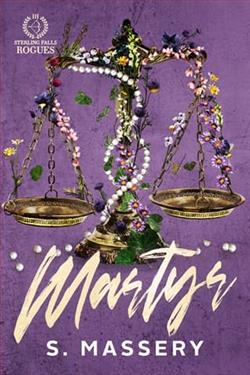Page 7 of Last Letter Home
‘Mmm.’ She wouldn’t let Aruna sway her. The man’s eyes had looked out across the years into her own in a way that had tugged at her heart. She had only been ten when Grandpa Andrews died and could not remember him clearly, but she’d seen pictures. She was possessed by the desire to know if this man was him.
The obvious thing would be to ask Mariella, but she wasn’t due for a day or two and Briony couldn’t wait. In the morning she’d find out where she lived and visit her.
After Aruna and Luke had retired to bed she sat alone for a while in the candlelight watching the shimmering reflection of stars on the tranquil surface of the pool and thinking. Grace, her counsellor, had encouraged her to talk about her mother, and in the course of these conversations Briony had come to understand the true extent of her loss. With her mother’s death she had lost that entire side of her family. Maybe, just maybe, she’d been handed a chance to recover something.
Four
It was to a modest farmstead that Signor Marco at the café directed Briony the next morning, on the side of the hill directly above the village, the path a slog to climb in the heat. Behind the yard gate, a heavy muscular dog of uncertain breed and doubtful friendliness broke into deep barks at her approach, but at a sharp command from Mariella it slunk back to its kennel.
Mariella invited Briony through into a cool, tile-floored kitchen where she was glad to sit at a wooden table and sip water. Of the boy who had given her the projector and the mysterious cine film there was no sign.
Mariella continued with her tasks, tidying freshly ironed laundry into a basket with deft movements. The back door stood open to a view of the terraced hillside and from the yard came the contented chook chook of chickens scratching for food. It was an idyllic place, and yet there was a tension in the room. Briony felt it in the way the woman watched her as she folded towels. It was as though she was weighing her up.
‘I wanted to say thank you,’ Briony began, meeting her eye. ‘For the projector.’ She mimed rolling film, like in a game of Charades.
‘Prego.’ The woman nodded. ‘You . . . watch it?’ She sank onto the kitchen chair opposite, clutching a pillowcase against her chest.
‘Yes. It’s the Villa Teresa, isn’t it?’
‘Si, si. In the war.’
Briony leaned forward. ‘Mariella, why did you want me to see it?’
Mariella shrugged in surprise. ‘Why? You are historian. You find out maybe, the people? Who they are?’
‘They’re British soldiers, definitely.’
‘Si, but their names, who they are. You can find out.’ Mariella appeared so eager, but why, why?
‘This is obviously important to you, Mariella. Where did the film come from?’
That wariness again. ‘Somebody give it to me,’ she mumbled. She would not meet Briony’s gaze.
Briony, puzzled, tried once more. ‘Who?’ she asked gently. ‘And why?’ but the questions silenced Mariella altogether. She held the pillowcase tightly, her face as expressionless as a smooth brown nut.
‘May I?’ Briony murmured, getting up to fill her glass from the tap. The drops of cold water splashing on her skin steadied her. She tried again. ‘Mariella, where did the film come from?’
‘The Villa Teresa,’ Mariella said finally. She laid the pillowcase on the table and neatened the folds. ‘My father find it there long time ago. When he was a boy.’ Now she’d decided to speak her words came out in a rush. ‘He die last year and these things he leave. I don’t know what to do with them.’
‘What things?’ Briony felt a prickle of interest. She couldn’t forget the face of that soldier in the film, weary, but cheerful, despite all that he must be going through. She remembered her grandfather had been like that, a steady man who been happy to live for the present and rarely spoke of the past or the future.
‘I will show you.’ Mariella left the kitchen and Briony heard her light tread on the stairs. After a couple of minutes she returned with a rectangular tin like an old-fashioned sandwich box. She flipped open the lid and took out a fat folded manila envelope that was soft and furry with age. She handed it to Briony, who turned the package over hopefully, but nothing was written on the front. She looked to Mariella for guidance.
‘Open,’ Mariella invited.
Briony untucked the worn flap, peeped inside and carefully withdrew a thick pile of old letters tied together with a length of frayed blue ribbon. Mariella sat down again, folded her arms and watched her with an expectant air.
The knot would not undo and it took Briony a while to ease the ribbon off the bundle. The envelope on the top was crumpled, as though someone had once forced it out, examined it and tucked it back under the ribbon again without much care. The ribbon suddenly split and the letters flew out over the table, twenty or thirty of them, maybe more. She herded them together, hoping the order was right, picked one up off the top and studied it, then another.
The letters were all addressed to a Private Paul Hartmann in the same educated English hand; elegant italic, a woman’s probably. Briony studied the addresses but they’d mostly been sent via the British Forces Post Office, so she couldn’t tell where Hartmann had been when he received them. Some envelopes were scrawled over in blue crayon, clearly forwarded from place to place. There were several letters without envelopes, including one that must have been folded and refolded so many times it was falling apart. She put that down and selected another. Wafer-thin paper crackled in her hand. The writing on it was fairly easy to make out. Flint Cottage, the writer had headed the page. 1st September 1940.
‘Read it,’ Mariella bade her, so she read it aloud in halting tones, sometimes having to go back to convey the sense properly. Dear Paul, it began.
I promised to write to you again very soon and apologize that this is the first opportunity that I’ve had, I’ve been so busy with the garden. We’re picking soft fruit, do you remember all those raspberries we planted at Flint Cottage? Well, there’s a good crop, mercifully, and Mrs Allman and I have been kept busy with pies and bottling for weeks, what with damsons, now the pears and the blackberries, and the Bramleys not far behind. It’s a nuisance that there’s so little sugar to be had.
Now I’m rambling and I haven’t asked you how you are. Did the last parcel from your mother arrive, with the soap and the blue jersey? I’m glad you’re not near London at present, given the news. If you do get moved let us know, won’t you. We think about you a great deal and try to imagine what you’re doing. You’re keeping your spirits up, I hope?
Diane is in Dundee still and we hear from her occasionally. Mummy is taking First Aid classes along with Mrs Richards! We are all keeping bright considering. Your mother is well and seems to like the library books I choose for her. We miss you like anything at Westbury Hall. All is well there, though we’ve hardly seen a blink of the Kellings. Ma and Pa, I mean. Diane’s seen Robyn in Dundee. I will try to write again soon.















